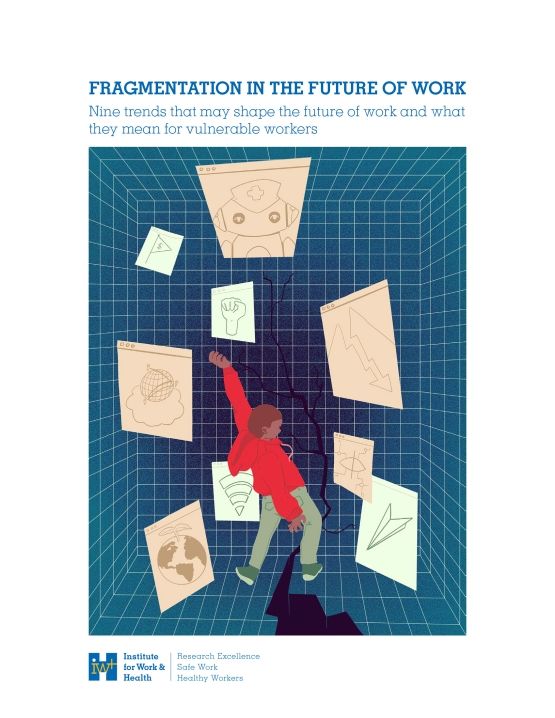In two decades’ time, the world of work in Canada and other industrialized countries will look very different than it does today. Major forces are driving change: digital technologies, artificial intelligence, climate change, demographic shifts and more. This change may have far-reaching consequences for a generation of workers.
In 2020, a research team based at the Institute for Work & Health, using a method from the field of strategic foresight called horizon scanning, began exploring what the future may hold for workers and workplaces, with a focus on people who may be more likely to work in vulnerable conditions. These populations include youth and young adults, women, racialized groups, recent immigrants, people with disabilities, members of the LGBTQ2+ community, Indigenous peoples, and those with lower social and economic standing—that is, groups of people who are more likely to find themselves in lower-skilled jobs that require less education and offer lower income.
The findings of the horizon scan are shared in this report, Fragmentation in the future of work. It shares nine trends that may shape the future of work and how they may affect vulnerable workers, both positively and negatively.
